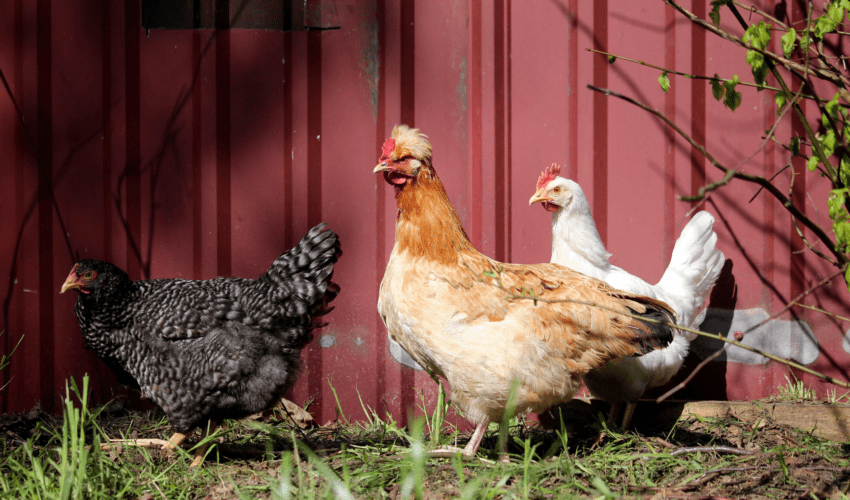Whether you’re new to backyard chickens or you’ve had a flock for years, it’s important to know the do’s and don’ts of feeding your birds.
Backyard chickens have fewer than 350 taste buds compared to humans’ 10,000. Still, treats and foraging can be fun pastimes for the flock. If you’d like to offer treats and free-range time, here are a few tips to keep in mind.
Choose one complete starter-grower feed for day 1 through week 18 and one complete layer feed for laying hens. To prevent nutrient dilution, provide complete feed for at least 90 percent of the bird’s diet. The remaining 10 percent can be filled with chicken treats, table scraps or scratch grains.
For spring-born chicks moving to the coop, continue feeding a complete starter-grower feed until week 18. Wait until the first egg to introduce treats as growing birds require all 38 nutrients in their starter-grower feed to support strong growth.
What can chickens eat?
If birds free-range or have treat access, start by feeding their complete feed in the morning before they go out exploring. Remember that scratch grains should be viewed as a treat and not be mixed with the complete feed. Chickens are natural foragers, so trying new foods is inevitable. Chickens tend to avoid foods that are bad or harmful for them, but some are healthier than others.
When it comes to foraging, there is a lengthy list of plants that chickens love as treats. Dark leafy greens can result in darker, richer yolks. Lettuce, kale, turnip greens and chard are great greens options. Watermelon, strawberries, and blueberries make healthy snacks for chickens when fed in moderation. A few flock favorites include:
- Vegetables: Lettuce, beets, broccoli, carrots, kale, swiss chard, squash, pumpkins and cucumbers
- Herbs: Lavender, mint, oregano, parsley, cilantro, thyme and basil
- Perennials: Daylilies, hostas, daisies, roses, coneflowers and ferns
What not to feed chickens
Avoid treats that may cause an off-flavor in eggs. Garlic and onions are the two most common culprits that may impact egg flavor. A few other foods should be avoided because they contain toxins that can make birds ill or even be fatal.
- Avocado pits and skins are toxic to chickens as they contain a toxin called persin. The flesh of the avocado is fine for chickens.
- Undercooked or dried beans can be harmful because they contain a compound known as hemagglutinin, which can inhibit digestion of everything the bird eats.
- Rhubarb contains anthraquinones, which can have a laxative effect. Rhubarb damaged by the severe cold can also contain a high concentration of oxalic acid, which can be fatal to chickens.
- Moldy, rotten foods and very salty foods can result in excessively wet feces and may be toxic.
Feeding chickens a balanced and complete diet is simple if you are mindful of the foods your birds have access to. Start with a complete feed as the baseline and then be careful not to over-treat your birds with goodies. When you do provide treats, choose healthy, wholesome treats that complement a bird’s diet.

